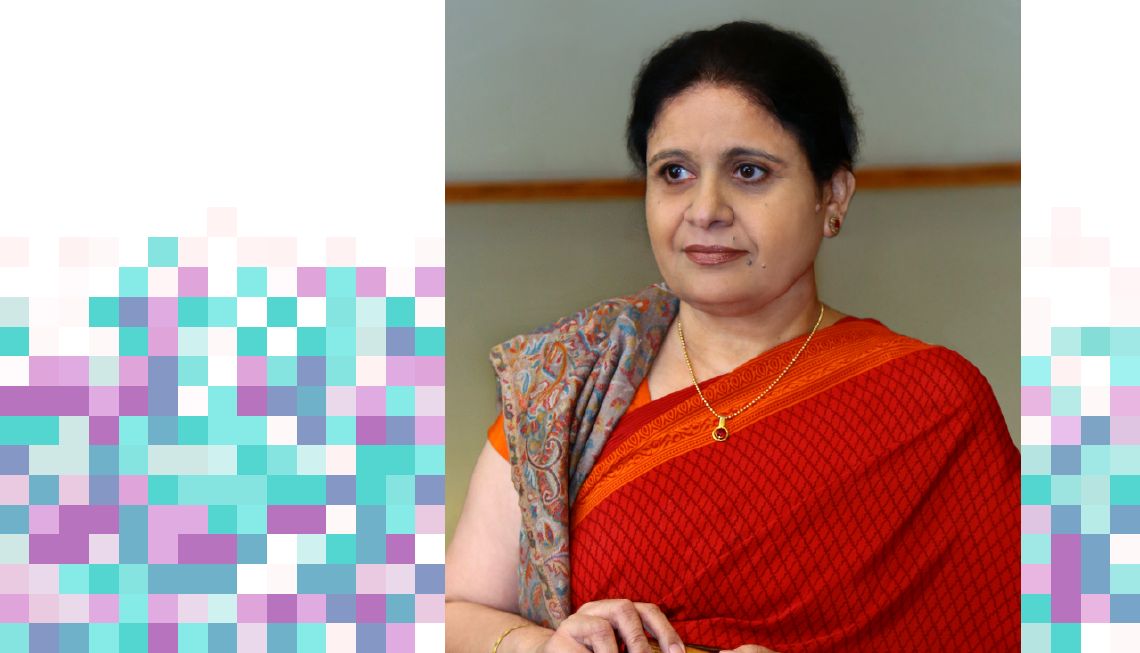Dr Neeta Verma, Director General, National Informatics Centre, India
By Nurfilzah Rohaidi
Women in GovTech Special Report 2019.

NIC has been closely associated with government in different aspects of governance. We established a nationwide state-of-the-art ICT infrastructure for exclusive use by government departments for internal communications, program management and online delivery of government services. Over the years we have built a number of digital solutions to support government at various levels from centre to states to district administration.
With the advent of the Digital India programme, the IT ecosystem in the country has also expanded manifold and we now have an enhanced penetration of the network, therefore last mile delivery of the government services online has become a reality. Today, there are a number of IT solutions where not only are the services provided online but also, the benefits are directly transferred to the citizens. Advancements in technology has also provided an enhanced user experience to the citizens.
NIC is in the unique position to deliver ICT services to executive, judiciary and legislative institutions in the country. In the recent past, a number of government initiatives such as Swacch Bharat Mission, e-Way Bill, MyGov, Housing for All, Fertilisers Distribution, Scholarships, etc. have been managed using digital platforms from concept to commission. Our services and platforms are creating the right interaction of government with citizens, government employees and businesses. Services such as e-Hospital have connected patients, doctors and hospitals on a digital platform, thereby providing easy access to healthcare services.
Towards the internal functioning of the government also, NIC has consolidated its offerings and put up a cloud-based platform which is available to all the government departments as a service. Digital solutions such as E-Office, E-HRMS, E-Procurement, E-Auction have helped the government organisations in streamlining their internal functioning. Besides this, State Centres of NIC are also helping respective State governments in building ICT solutions towards enhanced efficiency and ease of use by stakeholders.
What has been the most exciting thing that you worked on in 2019?
2019 was a year powered with digital transformation wherein emerging technologies such as Artificial Intelligence and Blockchain took the centre stage. It was a moment of pride for NIC that we established a one-of-its-kind Centre of Excellence in Artificial Intelligence with focus on exploring AI applications in governance. This Centre of Excellence also provides ready to use AI infrastructure for proof of concepts and pilots on application of AI in service delivery by government departments.
Apart from CoE in AI, we are soon to establish our CoE in Blockchain.
If you were to share one piece of advice that you learned in 2019, what would it be?
Information Technology and its application in all facets of life is increasing at a fast pace. Today, technology is acting as an enabler in almost all domains, so one needs to have a basic understanding of technology and its responsible usage. From infrastructure to development to service delivery, technology has marked its strong presence.
Thus, to keep in pace with the ever-developing technology landscape, continuous learning is the key and that is my one piece of advice to all. At NIC, we have instituted various programmes and initiatives that are completely focused on learning and development. There are online as well as classroom-based learning series, hackathons, ideathons, exclusive tech-governance sessions and various leadership sessions that ensure continuous learning for us at NIC.
What are your priorities for 2020?
As a nation, we are continuously embracing digital technologies. We are holistically invested in using emerging technologies to provide better services to our citizens, ensuring a robust cyber security posture. One of my key priorities for 2020 would be to further enhance our cybersecurity posture in terms of catering to complexities and sophistication in the nature of cyber threats that will evolve as we use more of emerging technologies.
Second focus will be on evolving more and more IT solutions into platforms powered by cloud, and generic enough to be used by various stakeholders across the country, thus realising our vision of one nation, one platform.
What is one challenge you would like to take on in 2020?
The world is rapidly changing with citizens embracing digital technologies in their day to day lives. Emerging technologies are changing the way services are offered to the citizens and how these services can now be used to improve the lives of citizens.
With such a massive shift in technology, there is a dire need to create a skilled workforce who will take us forward through this mandate. Thus, in the year to come, we would like to focus on recruiting and reskilling our professionals thus making them ready to leverage the potential of emerging technologies.
Tell us about some of the achievements of your organisation.
Our ICT infrastructure which spans from a gigabit network, data centres, cloud and video conferencing facilities has provided ready infrastructure for the government. Availability of cloud has reduced the time to launch any national level scheme or initiative from years to months through the concept of digital platforms.
Implementation of Direct Benefit Transfer across a number of government schemes has enhanced the reach of government services to the poorest of the poor and thereby reaching the unreached.
Our initiatives around successfully establishing Centres of Excellence in Artificial Intelligence, Data Analytics, Application Security, and the NIC – Computer Emergency Response Team are helping government in building next-generation solutions.